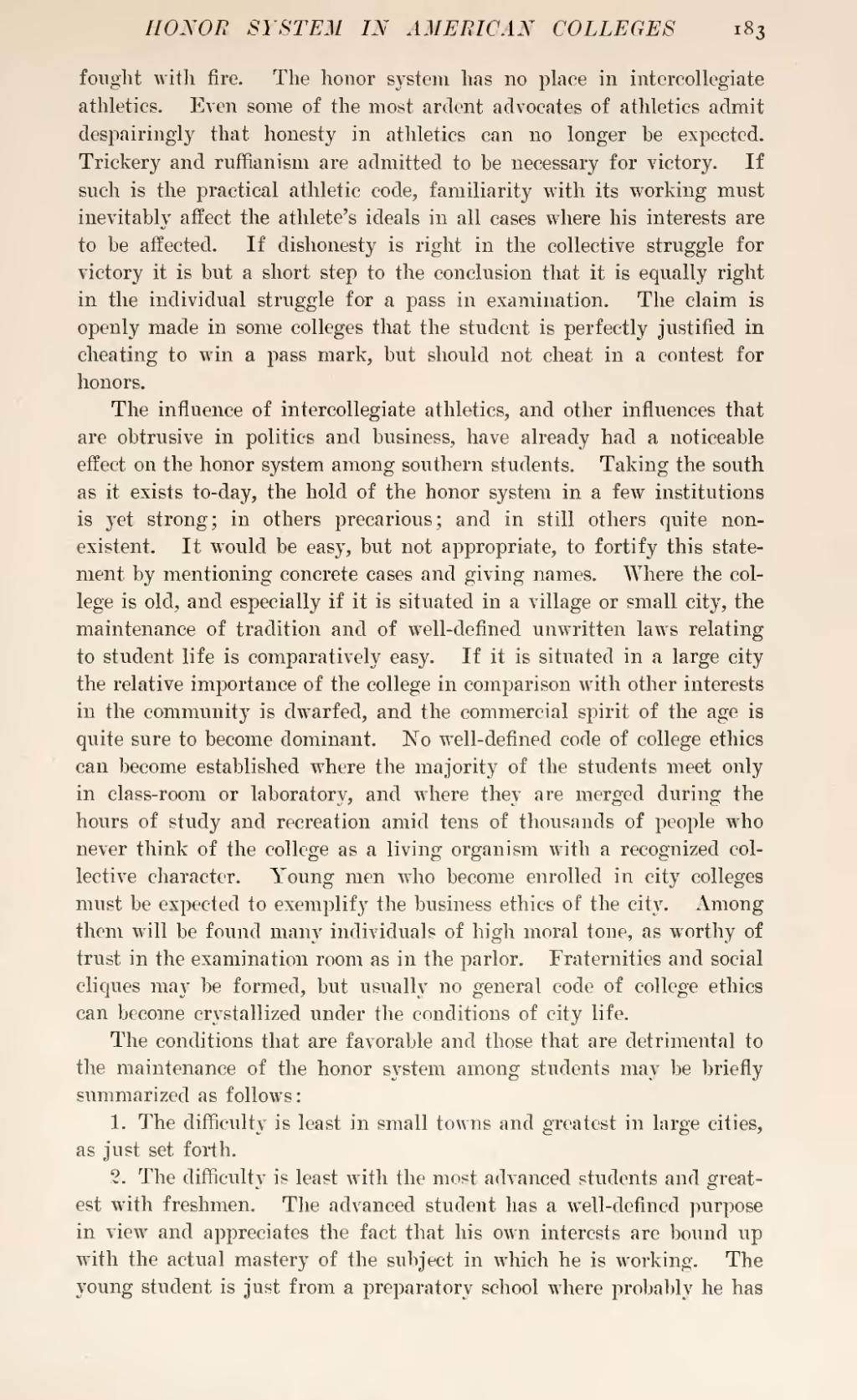fought with fire. The honor's system has no place in intercollegiate athletics. Even some of the most ardent advocates of athletics admit despairingly that honesty in athletics can no longer be expected. Trickery and ruffianism are admitted to be necessary for victory. If such is the practical athletic code, familiarity with its working must inevitably affect the athlete's ideals in all cases where his interests are to be affected. If dishonesty is right in the collective struggle for victory it is but a short step to the conclusion that it is equally right in the individual struggle for a pass in examination. The claim is openly made in some colleges that the student is perfectly justified in cheating to win a pass mark, but should not cheat in a contest for honors.
The influence of intercollegiate athletics, and other influences that are obtrusive in politics and business, have already had a noticeable effect on the honor system among southern students. Taking the south as it exists to-day, the hold of the honor system in a few institutions is yet strong; in others precarious; and in still others quite non-existent. It would be easy, but not appropriate, to fortify this statement by mentioning concrete cases and giving names. Where the college is old, and especially if it is situated in a village or small city, the maintenance of tradition and of well-defined unwritten laws relating to student life is comparatively easy. If it is situated in a large city the relative importance of the college in comparison with other interests in the community is dwarfed, and the commercial spirit of the age is quite sure to become dominant. No well-defined code of college ethics can become established where the majority of the students meet only in class-room or laboratory, and where they are merged during the hours of study and recreation amid tens of thousands of people who never think of the college as a living organism with a recognized collective character. Young men who become enrolled in city colleges must be expected to exemplify the business ethics of the city. Among them will be found many individuals of high moral tone, as worthy of trust in the examination room as in the parlor. Fraternities and social cliques may be formed, but usually no general code of college ethics can become crystallized under the conditions of city life.
The conditions that are favorable and those that are detrimental to the maintenance of the honor system among students may be briefly summarized as follows:
1. The difficulty is least in small towns and greatest in large cities, as just set forth.
2. The difficulty is least with the most advanced students and greatest with freshmen. The advanced student has a well-defined purpose in view and appreciates the fact that his own interests are bound up with the actual mastery of the subject in which he is working. The young student is just from a preparatory school where probably he has

